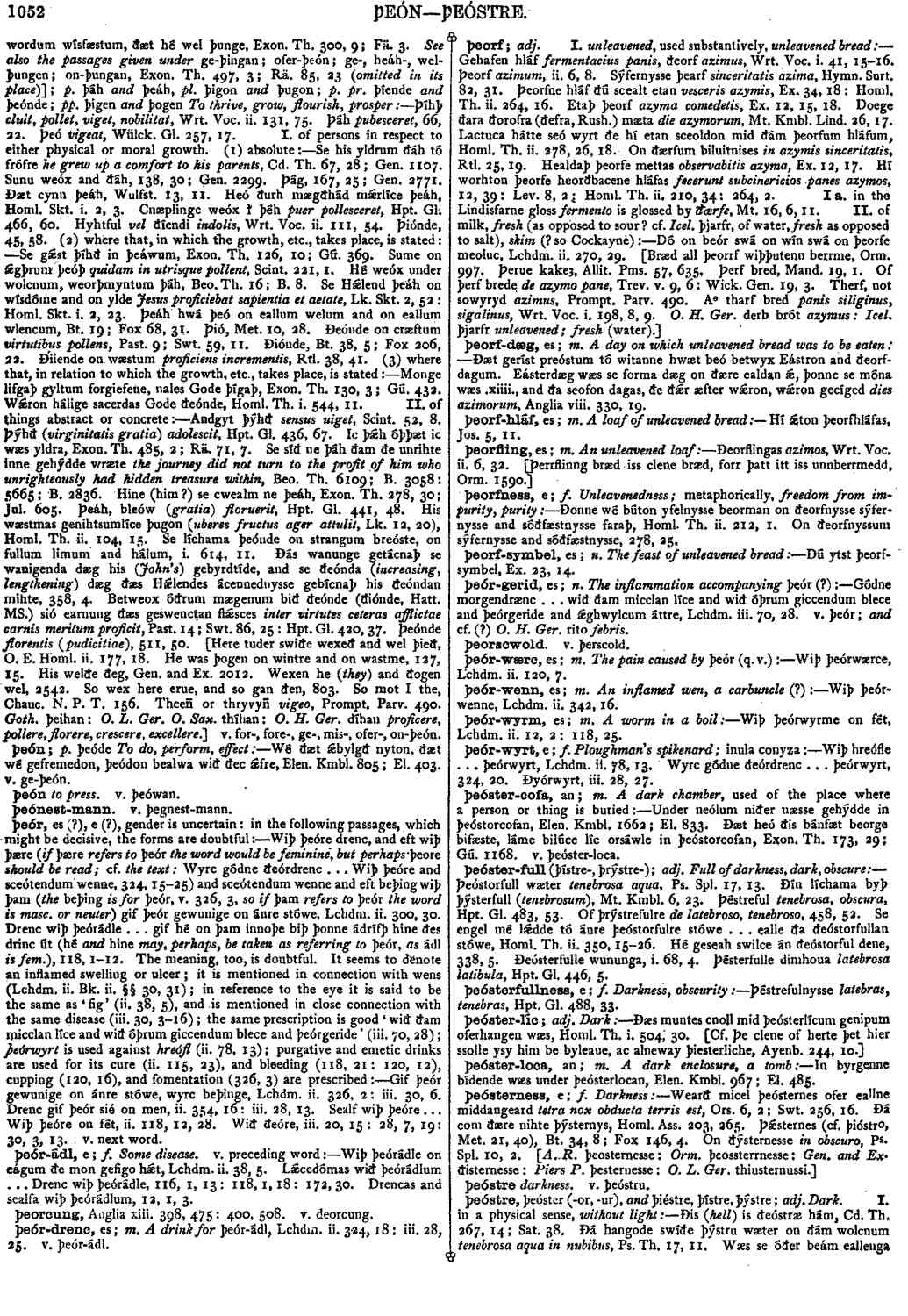þeór
- noun
-
Wiþ þeóre drenc, and eft wiþ þære (
if þære refers to þeór the word would be feminine, but perhaps þeore should be read; cf. the text: Wyrc gódne ðeórdrenc ... Wiþ þeóre and sceótendum wenne, 324, 15-25) and sceótendum wenne and eft beþing wiþ þam (the beþing is for þeór, v. 326, 3, so if þam refers to þeór the word is masc. or neuter )
gif þeór gewunige on ánre stówe,- Lchdm. ii. 300, 30.
-
Drenc wiþ þeórádle ... gif hé on þam innoþe biþ þonne ádrífþ hine ðes drinc út (hé
and hine may, perhaps, be taken as referring to þeór, as ádl is fem. ),
- 118, 1-12.
-
The meaning, too, is doubtful. It seems to denote an inflamed swelling or ulcer; it is mentioned in connection with wens (Lchdm. ii. Bk. ii. §§ 30, 31); in reference to the eye it is said to be the same as 'fig' (ii. 38, 5), and is mentioned in close connection with the same disease (iii. 30, 3-16); the same prescription is good 'wið ðam micclan líce and wið óþrum giccendum blece and þeórgeride' (iii. 70, 28); þeórwyrt is used against
hreófl
(ii.- 78, 13);
-
Drenc gif þeór sié on men, ii. 354, 16: iii. 28,
- 13,
-
Wið ðeóre, iii. 20, 15: 28,
- 7, 19: 30, 3, 13. v. next word.
Bosworth, Joseph. “þeór.” In An Anglo-Saxon Dictionary Online, edited by Thomas Northcote Toller, Christ Sean, and Ondřej Tichy. Prague: Faculty of Arts, Charles University, 2014. https://bosworthtoller.com/31744.
Checked: 0